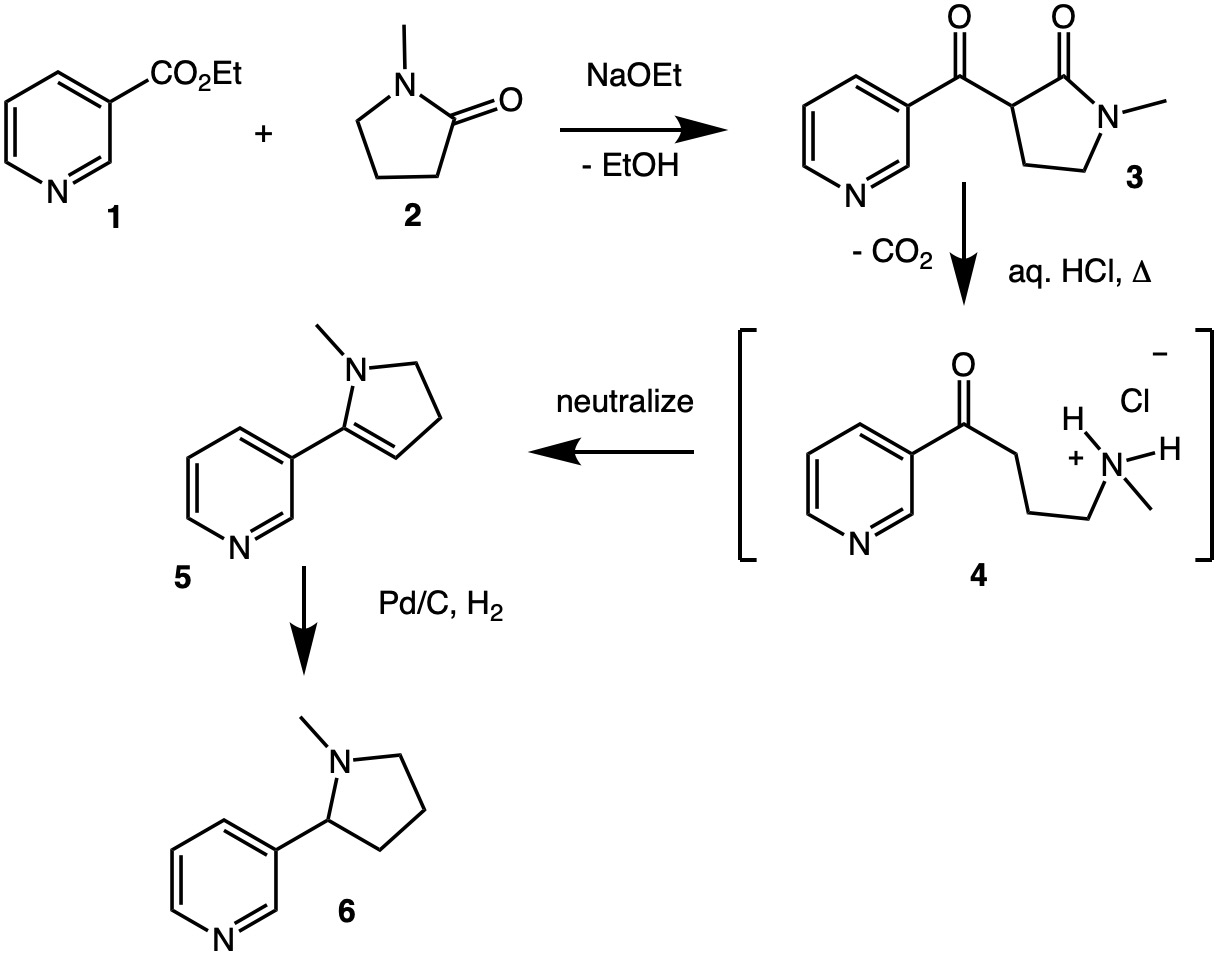You are correct about the Claisen condensation and the decarboxylation. You can't solve the synthesis as shown because there are too many steps. Ethyl nicotinate (1) and the lactam 2 condense to form the sodium salt of 3 in a reaction stoichiometric in base. That is to say, the reaction is not catalytic in base. Vigorous treatment with aq. HCl will neutralize the sodium salt 3, hydrolyse the lactam, and effect decarboxylation of the intermediate β-ketoesterketocarboxylic acid forming the salt 4. In my experience in a related case, neutralization of the salt with aqueous alkali, extraction with ether, and drying the extract over anhydrous $\ce{MgSO4}$ will afford dehydronicotine 5 via enamine formation. Hydrogenation produces racemic nicotine 6. The last two steps of the scheme are unnecessary. This said, I believe the scheme is made up. See the reference below and citations therein.
- C. J. Dunsmore, R. Carr, T. Fleming, and N. J. Turner, J. Am. Chem. Soc., 2006, 128, 2224.

